Views: 0 Author: Ancheng Publish Time: 2025-10-20 Origin: Site








Drinking straws have evolved far beyond the simple plastic tube we once took for granted. In today’s eco-conscious and regulation-driven world, businesses in the food and beverage sector — from cafes and restaurants to hotels and event caterers — are exploring a wide variety of straw materials and designs to meet both customer expectations and sustainability goals.
From traditional plastic to modern biodegradable and compostable straw alternatives, understanding the full range of straw options is essential for wholesalers, distributors, and hospitality professionals.
This comprehensive guide explores 20 types of drinking straws, their materials, features, benefits, and applications, to help you make informed sourcing decisions for your business.
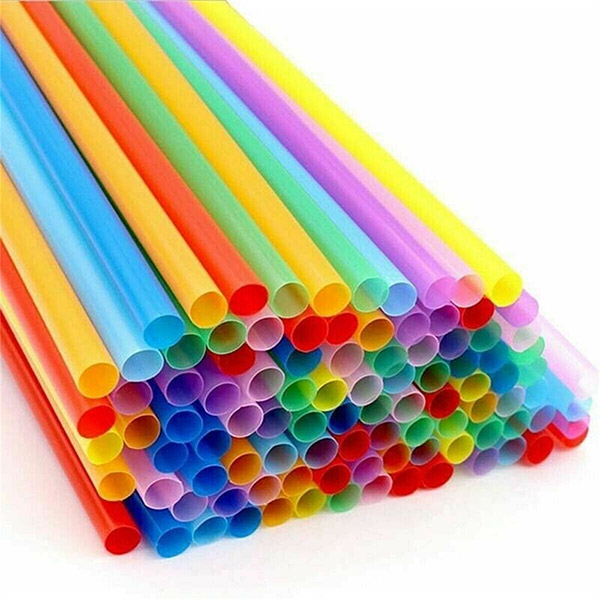
Plastic straws were once the universal standard in the food and beverage industry. Made from polypropylene (PP) or polystyrene (PS), they’re durable, flexible, and inexpensive.
Low Cost: Plastic straws are cheap to manufacture in large quantities.
Durable: Resistant to cracking, sogginess, and heat.
Convenient: Lightweight, flexible, and compatible with various drink types.
Mass Availability: Easy to source globally at consistent quality.
Non-Biodegradable: Plastic straws can take hundreds of years to decompose.
Environmental Harm: Major contributor to marine and land pollution.
Regulatory Restrictions: Banned or restricted in many regions, including the EU, Canada, and parts of the U.S.
Traditionally used in restaurants, fast-food chains, bars, and convenience stores. However, due to growing restrictions, their use is rapidly declining.
Businesses should check local regulations before purchasing plastic straws in bulk. Transitioning to eco-friendly alternatives like PLA, bamboo, or bagasse straws is a proactive step toward sustainability compliance.
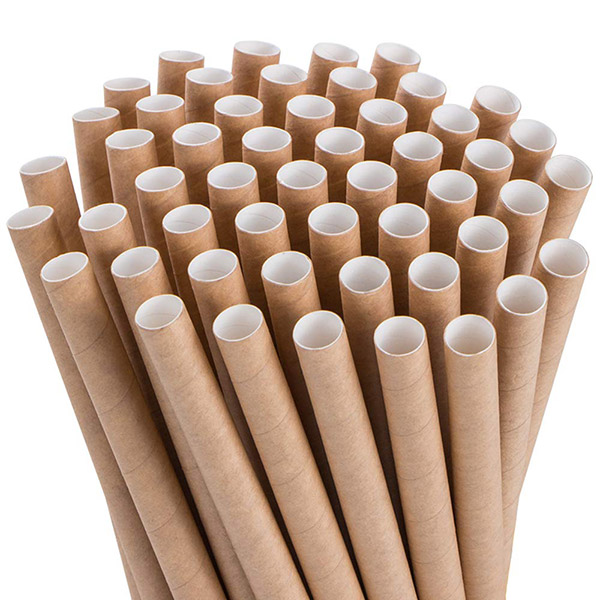
Paper straws are one of the most common eco-friendly alternatives to plastic. Made from biodegradable paper and often coated for durability, they are compostable and suitable for short-term use.
Eco-Friendly: 100% biodegradable and compostable.
Customizable: Can be printed with brand logos or designs.
Affordable: Moderately priced compared to bamboo or glass.
Regulation-Friendly: Accepted under most single-use plastic bans.
Durability: May soften or collapse in drinks after extended use.
Limited Temperature Resistance: Not suitable for very hot liquids.
Taste Impact: Slight paper flavor in some cases.
Ideal for cafés, juice bars, fast-casual restaurants, and eco-conscious event catering.
Choose high-quality, multi-layer paper straws with waterproof coatings for better performance. Businesses should balance price with customer satisfaction to ensure a positive drinking experience.
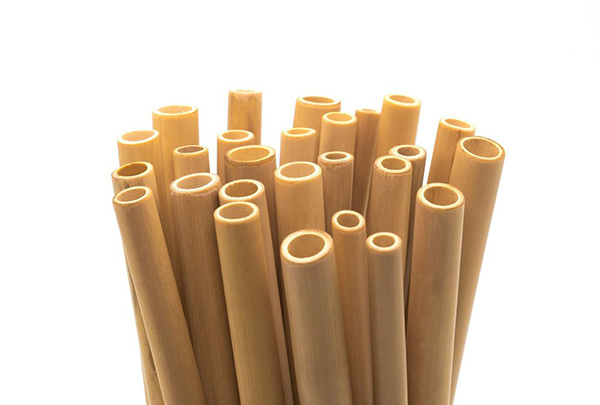
Bamboo straws are reusable and made from natural bamboo stems, offering a rustic and sustainable alternative for eco-friendly businesses.
Sustainable Material: 100% natural, biodegradable, and renewable.
Reusable and Durable: Can be washed and reused multiple times.
Aesthetic Appeal: Unique, natural look enhances presentation.
Chemical-Free: No dyes, bleaches, or plastic coatings.
Higher Cost: More expensive than disposable straws.
Maintenance Required: Must be cleaned and dried properly to prevent mold.
Inconsistent Sizes: Natural material variations may affect uniformity.
Perfect for eco-friendly restaurants, sustainable resorts, and high-end beverage services seeking a natural touch.
If offering bamboo straws, provide cleaning brushes or recommend proper sanitization methods. They are excellent for brands promoting sustainability but less practical for high-volume takeaway businesses.
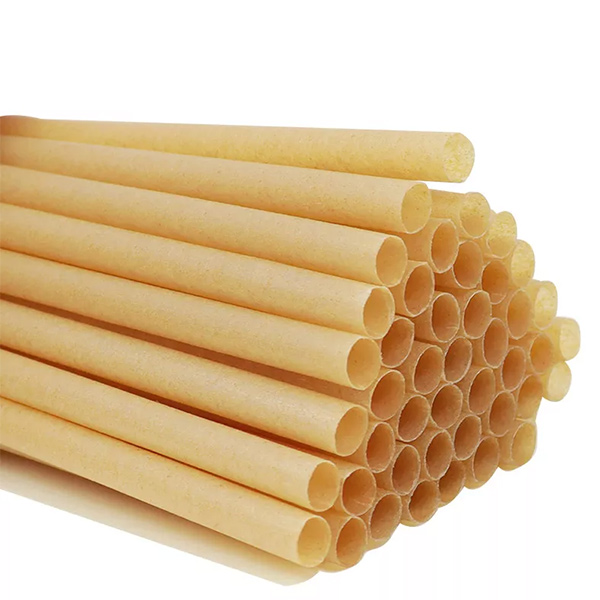
Sugarcane bagasse straws are made from the fibrous byproduct of sugarcane processing. These straws are fully biodegradable and compostable, offering a sturdy and natural-looking alternative to plastic and paper.
100% Biodegradable and Compostable: Breaks down naturally without pollution.
Durable: Water-resistant and maintains shape longer than paper straws.
Heat and Cold Resistant: Suitable for hot and cold drinks.
Food Contact Safe: Free from harmful chemicals and plastics.
Higher Production Cost: More expensive than paper straws in bulk.
Ideal for cafés, juice bars, hotels, and food delivery services looking for eco-friendly, disposable options with a premium feel.
Bagasse straws balance eco performance and practicality. They’re an excellent choice for B2B buyers seeking sustainable bulk straws that comply with plastic bans while maintaining quality.
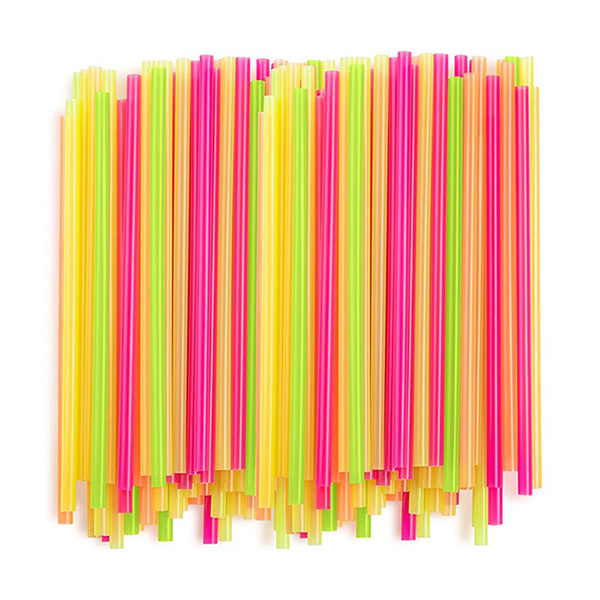
PLA (Polylactic Acid) straws are made from fermented plant starch, typically derived from corn or sugarcane. They look and feel like traditional plastic straws but are compostable under industrial conditions.
Eco Appearance: Similar to clear plastic, offering aesthetic appeal.
Compostable: Made from renewable plant-based materials.
Smooth Drinking Experience: Does not affect taste.
Industrial Composting Required: Cannot degrade in home compost or landfill.
Temperature Sensitive: Can soften in hot drinks.
Higher Cost: More expensive than paper or plastic.
Suitable for cold beverages like smoothies, bubble tea, and soft drinks in cafés and restaurants.
PLA straws are a good transition choice for regions with access to commercial composting facilities. Businesses should clearly communicate disposal methods to customers.
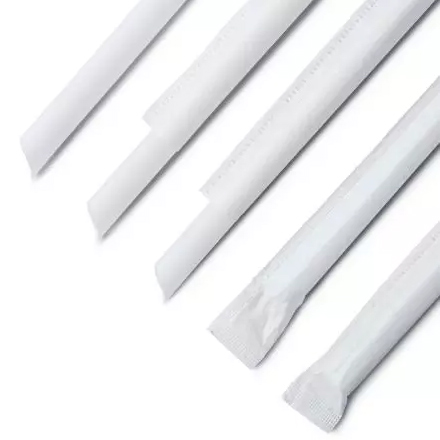
CPLA (Crystallized Polylactic Acid) straws are a heat-resistant version of PLA straws, offering the same plant-based sustainability with enhanced performance.
Heat-Resistant: Can withstand up to 85°C, suitable for hot beverages.
Compostable: Biobased and eco-friendly under industrial composting.
Sturdy and Smooth: Similar texture to plastic straws.
Industrial Composting Needed: Not suitable for home composting.
Slightly Higher Cost: Due to processing and material crystallization.
Ideal for cafés, coffee shops, and restaurants serving both hot and cold drinks.
For regions moving away from petroleum-based plastics, CPLA straws provide an excellent sustainable replacement while retaining the familiar performance of traditional straws.
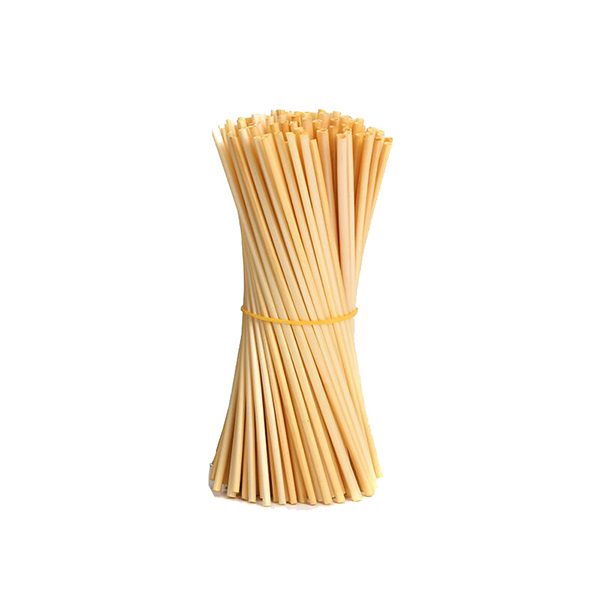
Wheat straws are made from the natural stalks left after harvesting wheat. They are a single-use but 100% natural and compostable product, offering a rustic, farm-to-table aesthetic.
Completely Natural: Made from renewable agricultural byproducts.
Fully Biodegradable and Compostable: Returns to nature quickly.
Chemical-Free: No additives, glues, or coatings.
Unique Aesthetic: Great for eco-themed events and organic cafés.
Fragility: Can break under pressure or in very hot liquids.
Limited Reuse: Single-use only.
Allergy Considerations: Not suitable for people with wheat allergies.
Perfect for cocktail bars, eco-cafés, and event planners promoting sustainability.
Wheat straws are affordable, compostable, and visually appealing, making them a great choice for businesses that want to reduce plastic use without compromising presentation.
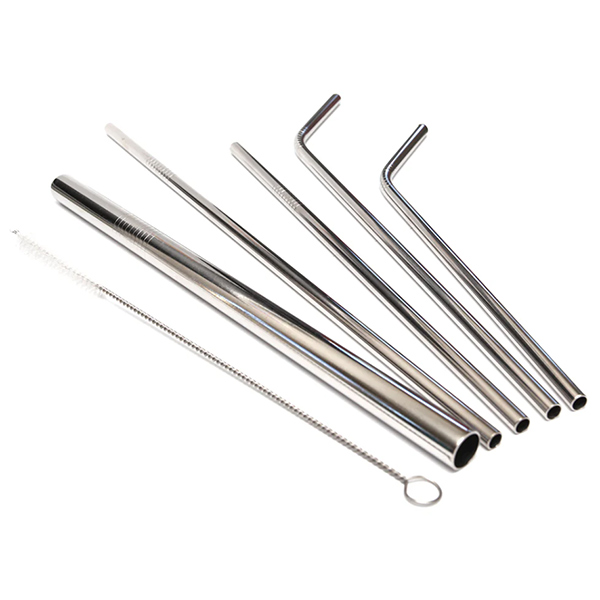
Stainless steel straws are durable, reusable, and long-lasting, appealing to environmentally conscious consumers and high-end hospitality establishments.
Extremely Durable: Can last for years with proper care.
Reusable and Washable: Reduces single-use waste.
Premium Appearance: Sleek and modern design.
Temperature Resistant: Suitable for both hot and cold drinks.
High Upfront Cost: More expensive per piece.
Cleaning Required: Needs brushes or dishwashing.
Common in upscale cafés, restaurants, and hotels offering dine-in service or eco-branded products.
Businesses adopting reusable stainless steel straws should plan for cleaning systems and storage. They can also serve as branded promotional items for eco-friendly marketing.
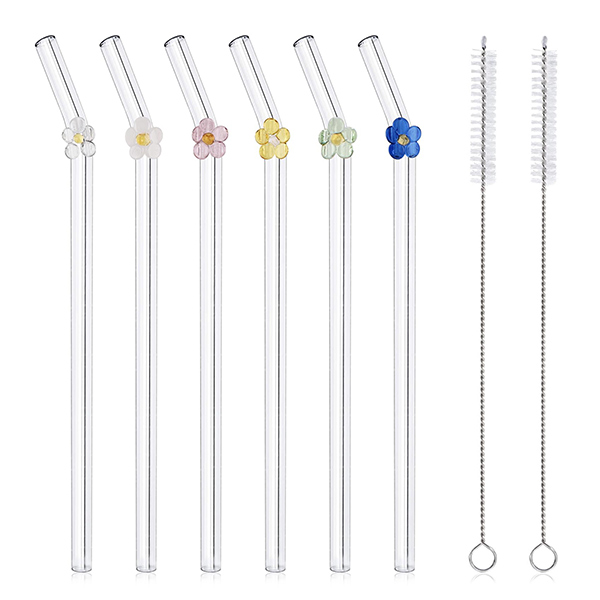
Glass straws combine elegance with reusability. Made from borosilicate or tempered glass, they offer a premium experience and aesthetic appeal.
Reusable and Eco-Friendly: Zero waste option for sustainable living.
Stylish and Transparent: Visually enhances beverages.
Non-Toxic and Easy to Clean: Dishwasher safe and odor-free.
Fragile: Can break if dropped.
Higher Cost: Expensive to produce and ship.
Safety Concerns: Not suitable for children or outdoor events.
Ideal for boutique cafés, cocktail bars, and eco-conscious hospitality settings that prioritize presentation and sustainability.
Glass straws add sophistication but require careful handling. Offering them with cleaning brushes or protective cases can enhance the user experience and longevity.
![]()
Silicone straws are flexible, soft, and reusable—perfect for families, children, or people who prefer a gentle alternative to metal or glass.
Reusable and Durable: Long lifespan, reducing waste.
Flexible and Safe: Won’t chip teeth or cause injuries.
Temperature Resistant: Works with hot and cold drinks.
Portable: Often comes with cases for travel use.
Not Biodegradable: While reusable, silicone is not compostable.
Retains Odors: Needs thorough cleaning.
Higher Cost: More expensive than disposable straws.
Suitable for family restaurants, kids’ cafés, or brands selling eco-friendly reusable straw kits.
Silicone straws are great for reusable initiatives. Businesses can sell them as branded merchandise or promote them as part of sustainability campaigns.
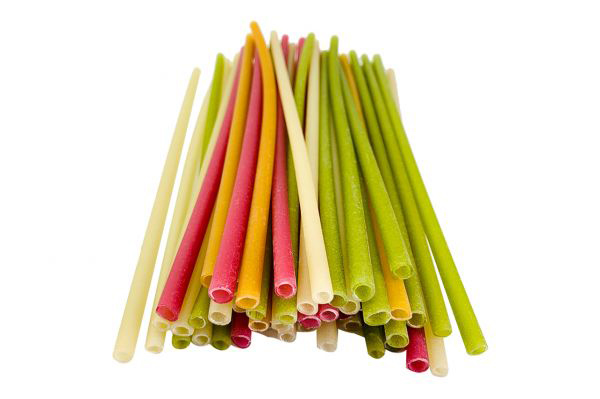
Rice straws are made from a mixture of rice flour and tapioca starch, then dried and molded into tubular shapes. Originating in Asia, they’ve become a popular biodegradable alternative to plastic straws.
100% Biodegradable and Edible: Made from natural food ingredients, rice straws decompose within days.
Plastic-Free: No microplastics or chemical residues left behind.
Sturdy in Cold Drinks: They can last 2–3 hours without softening.
Visually Appealing: Available in natural colors (white, pink, green) for decorative presentation.
Softens in Hot Drinks: May break down quickly in high temperatures.
Higher Cost: More expensive than paper or PLA options.
Limited Shelf Life: Must be stored in dry, cool environments.
Ideal for cafés, smoothie bars, and eco-themed restaurants that want to showcase sustainable, edible options. They’re also perfect for event catering or wedding receptions.
Businesses should ensure proper storage conditions to prevent moisture absorption and check supplier certifications for food safety and biodegradability.
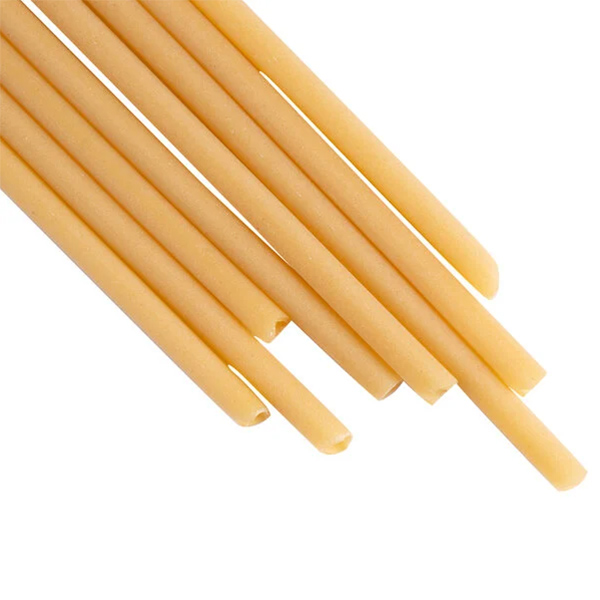
Made from durum wheat and water, pasta straws are a fun and biodegradable alternative, particularly suited for cold drinks.
Eco-Friendly: Fully compostable and edible.
Durable for Cold Beverages: Can last 30–60 minutes in cold liquids.
Inexpensive: Cost-effective compared to other edible materials.
Natural Ingredients: Free from chemicals or synthetic additives.
Not Suitable for Hot Drinks: Softens quickly in warm liquids.
Contains Gluten: Unsuitable for gluten-sensitive customers.
Slight Flavor Impact: Can slightly alter the drink’s taste if left for long periods.
Pasta straws work well for juice bars, cafés, and outdoor events emphasizing eco-awareness. Their visual uniqueness makes them a conversation starter in Instagram-friendly cafés.
Businesses serving diverse customers should label gluten content and test performance for different drink types before bulk ordering.
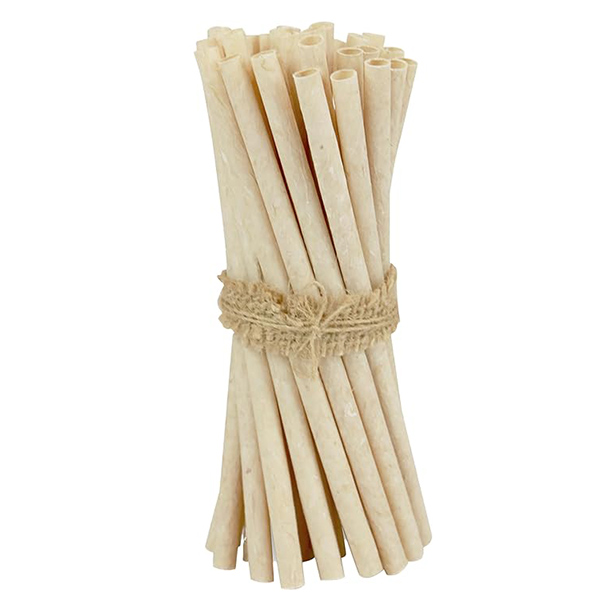
Coconut straws are made from the fibers of natural coconut or coconut water waste, offering a zero-waste and compostable solution.
Sustainable: Utilizes agricultural by-products.
Compostable and Plastic-Free: Breaks down naturally without harming the environment.
Durable: Can last up to 4 hours in drinks without deforming.
Heat-Resistant: Suitable for both hot and cold drinks.
Higher Cost: Production and export costs can be high.
Natural Variation: Texture and color may vary slightly.
Best suited for eco-lodges, sustainable hotels, and tropical-themed restaurants that emphasize environmental responsibility.
Ensure your supplier follows ethical sourcing and fair trade standards. The rustic texture might appeal to sustainable-focused audiences but may not fit luxury settings.
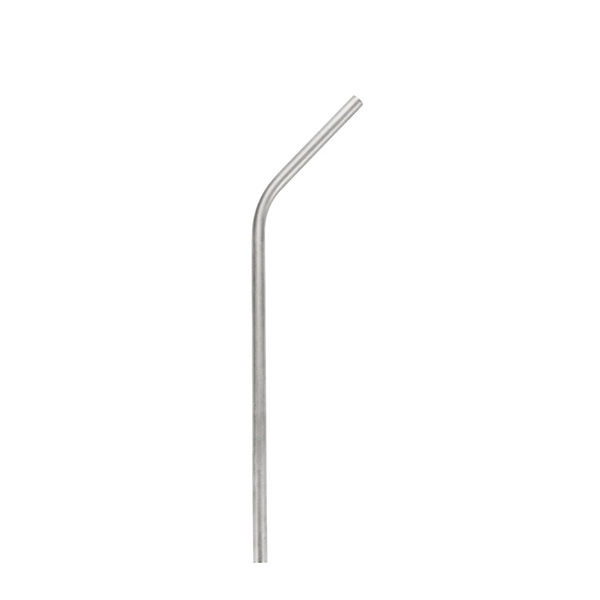
Titanium straws are premium-grade, reusable metal straws made from food-grade titanium—a material known for its strength, corrosion resistance, and lightweight nature.
Extremely Durable: Can last for decades.
Safe and Non-Toxic: Titanium is hypoallergenic and free from heavy metals.
Dishwasher Safe: Easy to clean and sterilize.
Elegant Aesthetic: Sleek metallic finish fits modern, high-end establishments.
High Initial Cost: Expensive compared to single-use options.
Requires Cleaning: Not disposable, needs maintenance.
May Conduct Heat: Becomes warm with hot beverages.
Ideal for luxury hotels, cocktail bars, and fine-dining restaurants looking to offer reusable and premium-quality utensils. They also make excellent branded merchandise for eco-conscious brands.
Consider providing cleaning brushes or cases for retail sales or customer giveaways. Proper cleaning procedures are essential for hygiene.
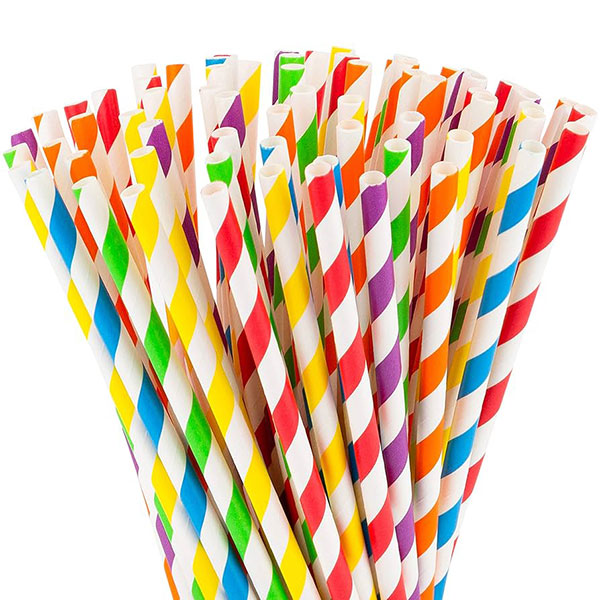
Paper straws are among the most recognizable alternatives to plastic straws, often made from recycled paper and biodegradable glue.
Eco-Friendly: 100% compostable and recyclable.
Affordable: One of the most cost-effective eco options.
Customizable: Easy to print logos or colors.
Widely Accepted: Recognized globally as a sustainable alternative.
Limited Durability: Softens after 30–60 minutes in liquid.
Unsuitable for Hot Drinks: Can warp or disintegrate quickly.
Storage Sensitivity: Needs dry storage to prevent moisture absorption.
Perfect for fast-food chains, cafés, and large event caterers looking for a disposable yet eco-responsible solution.
Choose high-quality multi-layer paper with food-safe glue for better performance. Branding opportunities (logo prints or colors) can strengthen eco-conscious image.

PHA straws are made from natural microbial fermentation of plant sugars or oils. They behave like plastic but are fully biodegradable in both soil and marine environments.
100% Biodegradable and Compostable: Breaks down in any environment within months.
Durable: Performs like conventional plastic.
Heat and Water Resistant: Ideal for both hot and cold drinks.
Non-Toxic: Food contact safe and chemical-free.
Higher Cost: Production technology remains expensive.
Limited Supply: Fewer manufacturers globally.
Slightly Brittle: Can crack under heavy pressure.
PHA straws are excellent for restaurants, airlines, and eco-certified food chains seeking a seamless transition from plastic to biodegradable options.
Verify supplier certifications (ASTM D6400, EN 13432) for compostability and check regional regulations on biodegradable plastics before large-scale use.
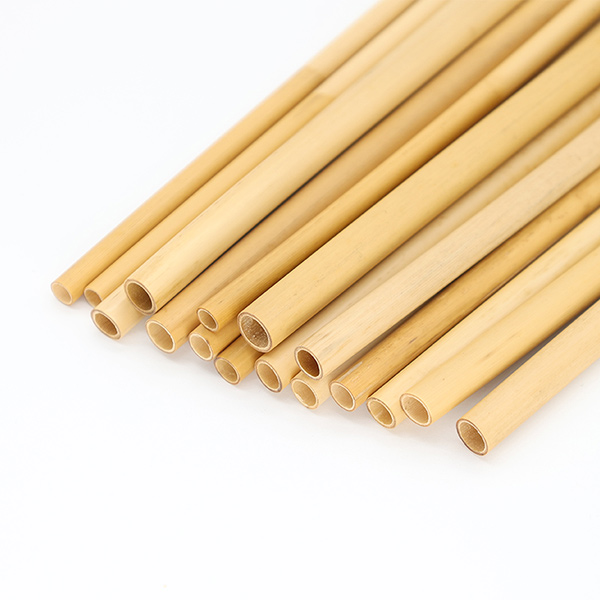
Reed straws are crafted from naturally grown reed plants (similar to bamboo but thinner), cut and cleaned to create a natural, biodegradable straw.
Completely Natural: No additives or coatings.
Reusable and Compostable: Can be reused several times if properly cleaned.
Unique Rustic Look: Adds a natural aesthetic appeal.
Heat Resistant: Performs well with hot beverages.
Variability in Size and Shape: Slight natural differences.
Availability: Supply may fluctuate based on harvest seasons.
Ideal for eco-cafés, organic juice bars, and sustainable event planners looking for authentic, rustic presentation.
Ensure suppliers conduct proper cleaning and sterilization processes. Reed straws are best marketed as premium natural products rather than low-cost alternatives.
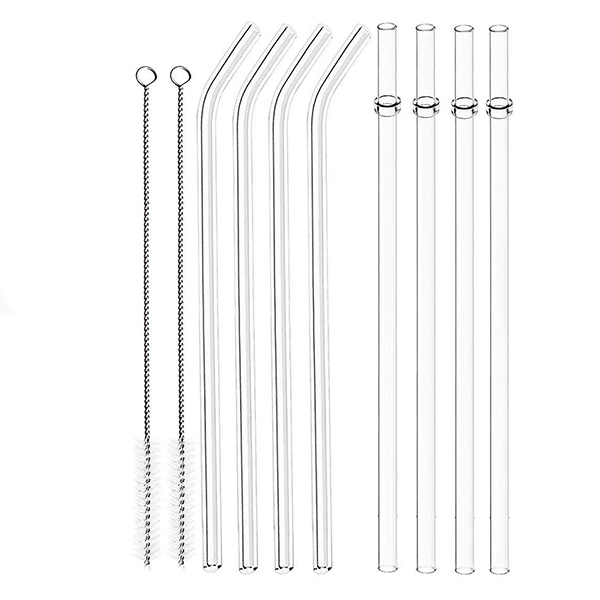
Acrylic straws are made from food-grade acrylic plastic, known for its clarity, durability, and reusability. They offer a colorful, stylish alternative to metal or glass straws.
Reusable and Durable: Can last hundreds of uses.
Vibrant Appearance: Available in many colors and transparent designs.
Affordable: Cheaper than metal or glass straws.
Lightweight and Safe: Doesn’t shatter easily.
Not Biodegradable: Made from synthetic materials.
Not Suitable for Hot Drinks: Can warp under heat.
Requires Cleaning: Must be washed after every use.
Acrylic straws are ideal for cafés, smoothie shops, and event venues focused on reusability and colorful presentation. They also work well as promotional items for beverage brands.
Ensure straws are made from BPA-free, food-grade acrylic and encourage reuse policies to reduce waste impact.

Aluminum straws are a lightweight, reusable, and recyclable metal alternative, often anodized for color variety and rust protection.
Reusable and Long-Lasting: Withstands years of use.
Lightweight and Portable: Easier to carry than stainless steel.
Customizable: Can be colored, engraved, or branded.
Fully Recyclable: Fits circular economy principles.
Heat Conductivity: Can become hot with hot beverages.
Requires Cleaning: Not suitable for single-use applications.
Possible Metallic Taste: Some users may notice slight flavor differences.
Perfect for sustainable restaurants, bars, and eco-gift suppliers. Aluminum straws can also be sold as branded merchandise or part of zero-waste starter kits.
Include cleaning brushes or carry pouches for customer convenience. Promote them as durable, recyclable, and lightweight to highlight their benefits.
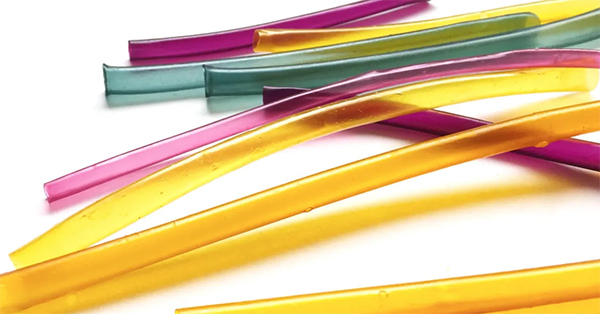
Made from seaweed and natural binders, these straws are edible, compostable, and represent one of the latest innovations in sustainable straw manufacturing.
Edible and Compostable: Fully safe to consume or dispose of naturally.
Ocean-Friendly: Made from renewable marine resources.
Plastic-Like Performance: Doesn’t dissolve in drinks for hours.
Flavor Variety: Available in neutral or fruity flavors.
High Cost: Production is still relatively expensive.
Limited Shelf Life: Requires proper storage to prevent moisture damage.
Niche Market: Not yet widely available globally.
Excellent for high-end cafés, eco-conscious brands, and hospitality businesses that want to showcase innovation and sustainability leadership.
Educate customers about edibility and storage requirements. Seaweed straws are great for marketing sustainability stories and enhancing brand image.
Here’s a comparative summary table for the 20 types of drinking straws listed above:
Type | Material | Reusable | Biodegradable | Best For |
Plastic Straws | Petroleum-based plastic (e.g., PP, PE) | No | No | Low-cost mass use, fast food chains |
Paper Straws | Recycled or virgin paper | No | Yes | Cafés, events, eco-conscious quick service |
Bamboo Straws | Natural bamboo | Yes | Yes | Eco-friendly cafés, resorts, sustainable brands |
Sugarcane Bagasse Straws | Sugarcane fiber (bagasse) | No | Yes | Eco restaurants, hotels, beverage chains |
PLA Straws | Plant-based polylactic acid (corn starch) | No | Industrially compostable | Cold drinks, eco food packaging |
CPLA Straws | Crystallized PLA (heat resistant) | No | Industrially compostable | Hot and cold drinks, cafés |
Wheat Straws | Natural wheat stems | No (single use) | Yes | Organic cafés, juice bars, outdoor events |
Stainless Steel Straws | Stainless steel | Yes | No | Long-term household or restaurant use |
Glass Straws | Tempered or borosilicate glass | Yes | No | Smoothies, luxury cafés, gifts |
Silicone Straws | Food-grade silicone | Yes | No | Kids, travel, reusable straw kits |
Rice Straws | Rice and tapioca flour | No | Yes (even edible) | Bubble tea shops, eco events, parties |
Pasta Straws | Wheat and water | No | Yes (edible) | Bars, events, short-term cold drinks |
Coconut Straws | Coconut leaves or fibers | No | Yes | Tropical drinks, eco resorts |
Titanium Straws | Titanium metal | Yes | No | Premium reusable straw markets, gifts |
Recycled Paper Straws | Recycled paper pulp | No | Yes | Eco cafés, sustainable packaging use |
Biodegradable Plastic (PHA) Straws | Polyhydroxyalkanoate (PHA) from bacteria fermentation | No | Yes (home compostable) | Cold/hot drinks, eco businesses |
Reed Straws | Natural reed grass | No | Yes | Eco cafés, resorts, organic drink brands |
Acrylic Straws | Acrylic plastic | Yes | No | Decorative drinks, parties, bars |
Aluminum Straws | Aluminum metal | Yes | No | Reusable straw kits, restaurants |
Edible Seaweed Straws | Seaweed extract | No | Yes (edible) | Juice bars, events, sustainable catering |

Here are key factors B2B buyers should evaluate before placing bulk orders:
Choose compostable or biodegradable options to align with global plastic bans and eco-certification standards (e.g., CE, LFGB, SGS).
Hot beverages require heat-resistant materials like stainless steel, silicone, or bamboo.
Cold beverages pair well with paper, PLA, or rice straws.
Customers notice texture, rigidity, and mouthfeel. Test samples before large orders to ensure satisfaction.
Compare unit prices, shipping weight, and storage stability. Natural materials like bamboo or bagasse offer great value with eco-appeal.
Eco-friendly packaging and compostable materials enhance your sustainability story, helping attract environmentally conscious partners and clients.
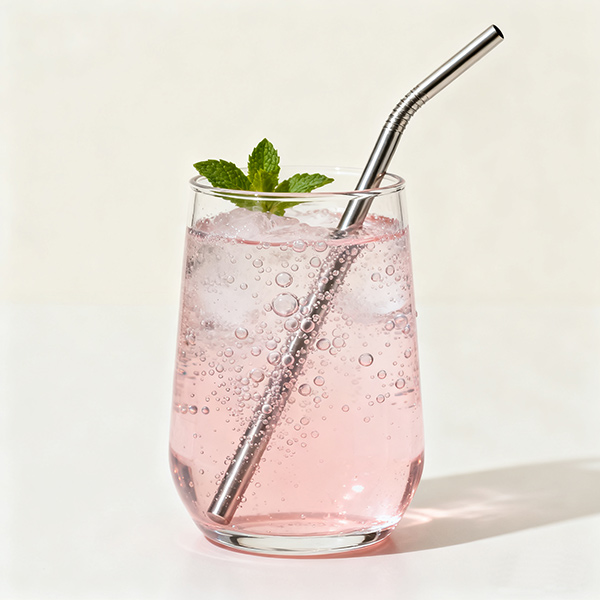
As sustainability becomes a global priority, the market for eco-friendly straws continues to expand. Innovations are focusing on natural materials like bamboo, sugarcane bagasse, and seaweed, creating straws that decompose naturally and leave no waste behind.
Governments, especially in regions like the EU, UAE, and the U.S., are implementing stricter bans on single-use plastics — accelerating the shift toward compostable and reusable solutions.
Brands and manufacturers are also embracing custom printing and branding, allowing businesses to showcase their eco-commitment while maintaining aesthetic appeal.
Drinking straws are no longer a simple accessory — they’re a statement of environmental responsibility and brand values. Whether you choose biodegradable paper, compostable sugarcane bagasse, natural bamboo, or innovative seaweed-based straws, the key is aligning your product choice with your market’s sustainability goals.
By understanding these 20 types of drinking straws, businesses can confidently select the right option that balances cost, performance, and ecological impact.
With the ongoing shift toward eco-conscious dining and global single-use plastic bans, adopting sustainable straw solutions is not just good for the planet — it’s good for business.